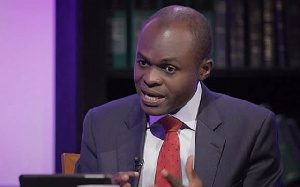Private legal practitioner Martin Kpebu has called on former President John Mahama to revise his directive requiring appointees to declare assets by March 31, 2025, arguing the timeline flagrantly violates Ghana’s 1992 Constitution.
Kpebu’s critique centers on Article 286, which mandates public officials to submit asset declarations before assuming office—a provision he insists renders Mahama’s post-appointment deadline legally untenable.
“The Constitution is explicit: declarations must be made prior to taking up a role. Setting a March 31 deadline perpetuates an unconstitutional practice,” Kpebu asserted during a February 22 appearance on KeyPoints, a political talk show. His remarks follow Mahama’s recent pledge to publicly declare his own assets and enforce compliance among prospective appointees, a move initially praised as a step toward accountability. However, Kpebu contends the delayed timeline undermines the law’s intent. “Why not align the process with the Constitution from the start? Correcting this isn’t weakness—it’s leadership,” he argued.
The legal scholar urged Mahama to amend the directive promptly, drawing parallels to the former president’s past willingness to acknowledge missteps. He cited Mahama’s 2014 apology to Catholic bishops after their exclusion from a national education forum as proof that course corrections can bolster public trust. “Leaders grow when they rectify errors. Adjusting this deadline would show respect for both the law and the electorate,” Kpebu stated.
Kpebu’s challenge underscores a decades-old tension in Ghanaian governance. While Article 286 was designed to deter corruption by mandating upfront transparency, enforcement has been lax, with declarations often submitted late—or not at all—without consequence. Critics argue the system’s opacity fosters impunity, as submissions remain sealed unless scrutinized during rare corruption probes.
Mahama’s March 31 deadline, though framed as a reform, inadvertently highlights this systemic flaw. By allowing appointees weeks or even months after assuming office to declare assets, the policy risks enabling illicit wealth accumulation during the critical early phases of a term. “The loophole is obvious,” said governance expert Dr. Kojo Asante. “If you declare after taking office, how do we assess whether new assets were acquired legitimately?”
Kpebu’s intervention taps into simmering public frustration over Ghana’s accountability mechanisms. Asset declaration, a cornerstone of anticorruption efforts globally, has devolved into a checkbox exercise in Ghana due to weak enforcement and confidentiality clauses. Civil society groups have long demanded reforms, including public access to declarations and verified audits—a framework adopted by nations like Kenya and Nigeria to deter graft.
For Mahama, the controversy presents both a risk and an opportunity. Adhering to Kpebu’s advice could reinforce his credibility as a reform-minded leader ahead of the 2024 elections. Conversely, dismissing the critique may fuel perceptions of complacency toward governance flaws. “This isn’t just about deadlines—it’s about demonstrating commitment to the rule of law,” emphasized Kpebu.
As debates over transparency intensify, the focus now shifts to Mahama’s next move. Will he amend the directive to meet constitutional standards, or will Ghana’s asset declaration regime remain a well-intentioned but flawed process? For citizens weary of unfulfilled promises, the answer may define their faith in the political class’s ability to self-correct.
Send your news stories to newsghana101@gmail.com
Follow News Ghana on Google News












